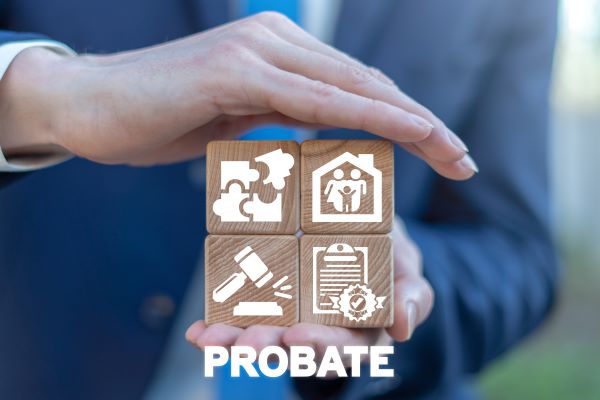The purpose of probate court is to verify the validity of a will and to ensure that an executor handles the decedent’s assets, debts, and final tax filings in accordance with the decedent’s wishes and the law. To begin probate, a personal representative or executor must file with the county court where the decedent lived, even if there is a property for dispersal in another state.
By law, when a person dies, their estate must be dispersed among heirs, outstanding debts paid, and the filing of final government taxes. These tasks are the responsibility of the named executor in the decedent’s will. The first probate hearing approves or names the estate executor. If the decedent dies intestate (without a will), the probate court will assign an executor to determine asset distribution to the heirs as outlined by state law.
What are the Steps of the Probate Process?
First, probate filings receive approval about twenty percent of the time, and the executor will receive approval for the Order of Probate. The executor will receive Letters Testamentary from the court, which authorizes the executor to act for the estate and carry out the decedent’s wishes according to how their will is written. If there are deficiencies or requests for supplemental information, the court will set a future date for approval and review the additional data. Letters Testamentary and Order for Probate are essential to moving forward, and the executor should get them as quickly as possible and get two or three certified copies.
If the probate court finds everything in order and determines the will in question to be legally valid, the approved executor sets about dispersing the assets to heirs, handling outstanding debts, and paying the decedent’s final taxes. If an heir is disgruntled regarding their share of assets to be received or left out of the will entirely, they may petition the probate court to effect a change. Contesting a will to a probate court as a potential or disgruntled heir usually involves claims that the decedent was:
- Not of sound mind (mental state) when writing their will
- Under undue influence
- Suspicions of will fraud or forgery
- Improper will execution
Likewise, creditors who have a claim against the estate may also petition the probate court if the debt claim is not paid in its entirety. Generally, these debts are personal loans, credit card debt, medical expenses, and unpaid bills.
Understand Petitioning Probate Court
An heir or creditor may petition the probate court about their rights to the estate if the executor denies their claim. The probate court’s job is to determine if the claim is legitimate or not in response to a petition filing. Acting on the filing, the court will set a hearing date, and all relevant parties will receive notice of that date and time. The parties to receive notice include the executor or personal representative, heirs, creditors, and anyone named in the will. These challenges to an estate require a knowledgeable probate litigation attorney to get the best results.
When all claims and duties are complete, the executor will file a petition to allow the final distribution of estate property. This petition filing typically happens ten to twelve months after the initial probate filing at the second hearing, depending on the size and complexity of the estate and accounting for any issues or delays. The executor provides detail of their actions regarding the estate to the probate court judge. The judge will review the information and determine if all actions are in order, at which point they sign the petition for distribution. The estate will then be closed.
The Value of Working with an Attorney During Probate
The probate court process can be lengthy and complex or short and straightforward depending on the size of the decedent’s estate, the validity or existence of their will, proper and prompt filing of information, and heir and creditor challenges to the estate. Having an attorney assist you with your estate plan can help mitigate the risk of challenges later. We would be happy to speak with you about your planning needs to ensure your will won’t cost your family and loved one’s time and money later.
We hope you found this article helpful. We help families build estate plans that work. Please contact our Coral Gables office today at (786) 804-3456 and schedule a consultation to discuss your legal matters. We look forward to the opportunity to work with you.

